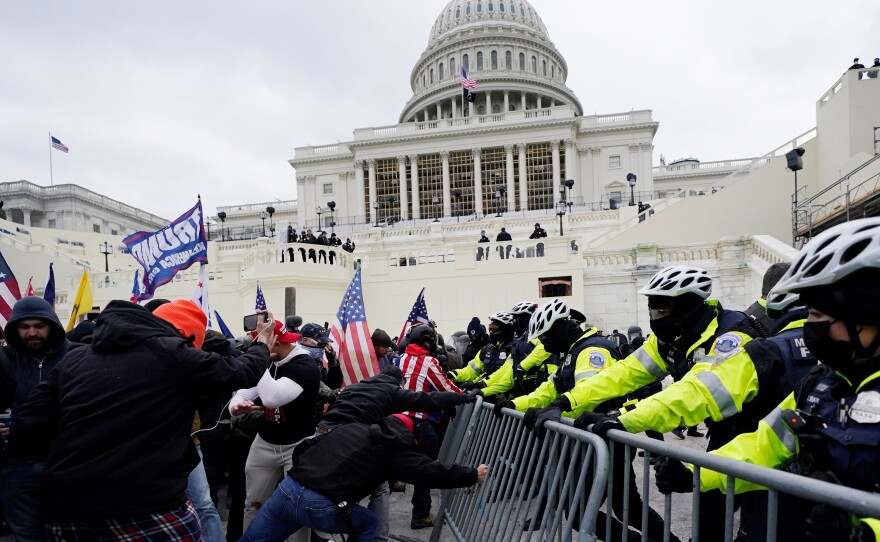One year ago, an angry mob attacked the Capitol just as Congress was about to certify President Joe Biden’s electoral victory.
Congressman Scott Peters (D-San Diego) was in the gallery watching the proceedings when the mob attacked. He said it was a great shock and him and his colleagues.
One year later, they're still trying to figure out what happened.
“We're on our way to figuring out exactly what happened, how to make sure it doesn't happen again,” he said.
RELATED: Where the Jan. 6 insurrection investigation stands, one year later
One of the insurrectionists killed that day was Ashli Babbitt. She was a former Air Force veteran and lived in Ocean Beach, part of Peters' district. He still remembers the chaos that happened that day, including hearing the gunshot that he thinks killed Babbitt.
“I remember being part of that and thinking being amazed and upset that this could happen to what has to be one of the top terrorist targets in the world, the United States Capitol," Peters said. "The security was certainly a failure.”
For freshman representative Sara Jacobs (D-La Mesa), Jan. 6, 2021, was only her fourth day in Congress. She said it made her realize that her job is protecting and defending democracy.
“We can no longer rest on the strength of our institutions because our institutions are the ones being co-opted," she said. "But as dark and scary and difficult as that all sounds, and it is, I believe that there is a path forward.”

As optimistic as some local representatives are, UC San Diego political science professor Barbara Walter said the seeds of civil war were sown on Jan. 6, 2021, and that the U.S. is now considered a semi-democracy, or anocracy.
“The United States was downgraded to 'anocracy' for the first time after Jan. 6 of last year," she told KPBS Midday Edition. "It hadn't been an anocracy since 1800, and it's no longer considered the world's longest-standing democracy."
She said the U.S. shared some characteristics that have led to civil wars in other countries, including a fraying of democracy. Nearly three-fourths of Republicans believe Donald Trump won the 2020 election and Biden's presidency is illegitimate, according to a poll from Monmouth University.
RELATED: A year after the Jan. 6 attack, Congress is plagued by a toxic atmosphere
In the U.S., racism and the fear of changing demographics have been feeding dissent, Walter said.
Congressman Juan Vargas (D-Chula Vista) said he and his staff were ready to fight the mob if necessary on that January day. He and two staffers were holed up in his office in the basement of the Capitol, armed with two ceremonial axes and a flag pole.
He said he recognized then how close U.S. democracy came to failing that day.
“What would have happened if Donald Trump, as president, would have turned the military against the people," Vargas said. "In other words, if he would have decided, 'I'm going to stay in office by using force.' I mean, he at that point was still the commander-in-chief for another two weeks.”
He said he’s disappointed in some of his Republican colleagues who, till this day, won’t stand up against Trump for fear of losing an election. He called it cowardly and sad.
But Vargas praised Republican Reps. Liz Cheney (R-Wyoming) and Adam Kinzinger (R-Illinois) for standing up for the truth. Both are on the Select Committee investigating the Jan. 6 attack.
RELATED: One year after the Jan. 6 insurrection, signs of a nation deeper in peril
Congressman Darrell Issa (R-Alpine), San Diego's lone Republican representative, released a statement saying the weeks and months that followed the Jan. 6 attack were "devastating for the nation."
But he spent much of the statement attacking the Biden administration.






